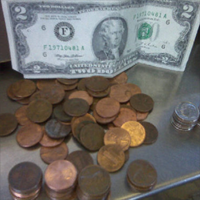I spent the five happiest years of my life in a morgue. As a forensic scientist in the Cleveland coroner’s office I analyzed gunshot residue on hands and clothing, hairs, fibers, paint, glass, DNA, blood and many other forms of trace evidence, as well as crime scenes. Now I'm a certified latent print examiner and CSI for a police department in Florida. I also write a series of forensic suspense novels, turning the day job into fiction. My books have been translated into six languages.
Being 'on call' and knowing you can be interrupted at any moment of the day and have to go to a crime scene, even if it's the middle of the night or a holiday. Having to get up once or twice during the night after working 10-12 hours and knowing you have to work those hours for another day or two is pretty disheartening. I've also had to change vacations because I have to testify in a trial. I hate that.
First of all, no teacher should ever tell you you're 'not smart enough' for a field.
Second, not all forensic work involves a great deal of biology--really only DNA analysis and serology do. Toxicology will require a good chemistry background. But specialized fields such as latent prints, crime scene investigator, questioned documents, digital evidence, ballistics and impression evidence would use little to no biology.
If a formal degree becomes a problem, you might want to see if you can start out in an Evidence/Property area and work up from there.
Best of luck!
Well, you could simply say you're going to be an anthropologist, which is true--I believe you'd have to be an anthropologist first and then specialize in forensic work. They might be disapproving because they believe it will be difficult to get a job--which is probably also true. When I was at the coroner's office our anthropologist was a college professor who would drive two hours to come and consult whenever we had skeletal remains. Very few agencies are large enough to have a full-time anthropologist on staff. So you might want to have some sort of back-up plan.
I think those sound like fabulous courses for this field.
Casino Dealer
 How do you prove that someone is card-counting?
How do you prove that someone is card-counting?
Toll Collector
 Do you think there will be a time where all tolls are automated?
Do you think there will be a time where all tolls are automated?
Toll Collector
 What happens when a car blows past a tollbooth without paying?
What happens when a car blows past a tollbooth without paying?
That depends on what you want to go into. If you want toxicology, go with chemistry. If you want serology or DNA, go with biology. If crime scene, general forensic science.
They might. I couldn't say for sure one way or the other.
Yes. It's not common, but prints have been lifted using superglue or the more recent RTX. The best areas would be those that are smooth, clean and largely free of hair.
-OR-
 Login with Facebook
Login with Facebook (max 20 characters - letters, numbers, and underscores only. Note that your username is private, and you have the option to choose an alias when asking questions or hosting a Q&A.)
(A valid e-mail address is required. Your e-mail will not be shared with anyone.)
(min 5 characters)
By checking this box, you acknowledge that you have read and agree to Jobstr.com’s Terms and Privacy Policy.
-OR-
 Register with Facebook
Register with Facebook(Don't worry: you'll be able to choose an alias when asking questions or hosting a Q&A.)